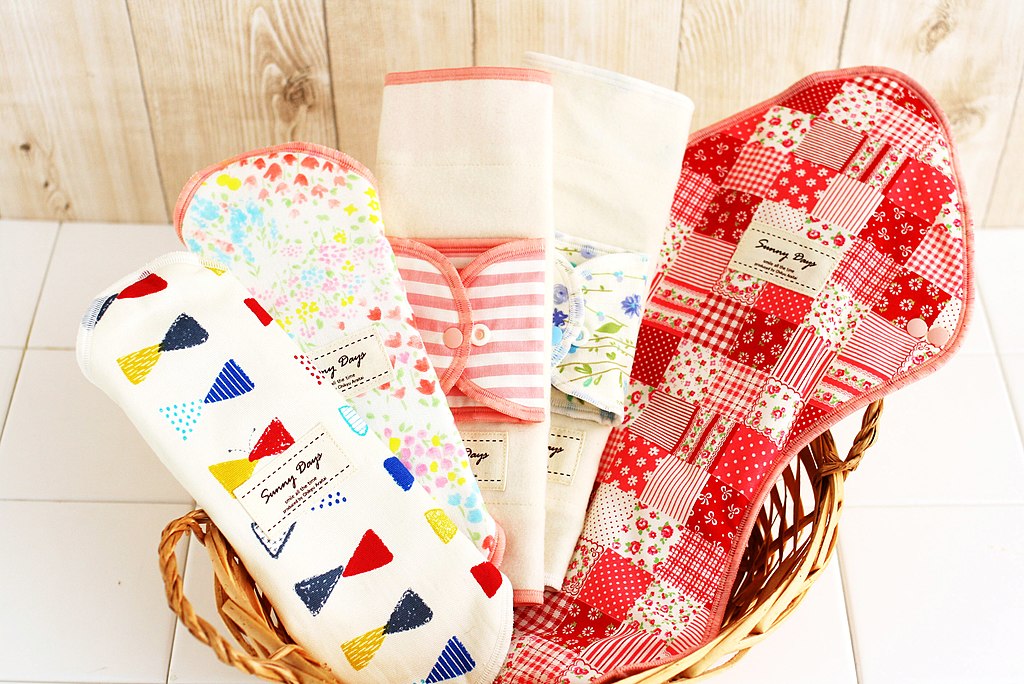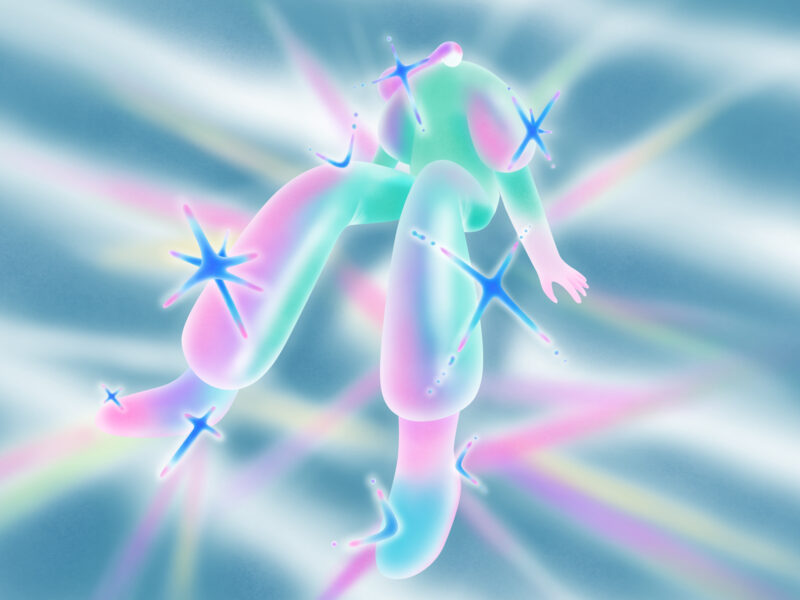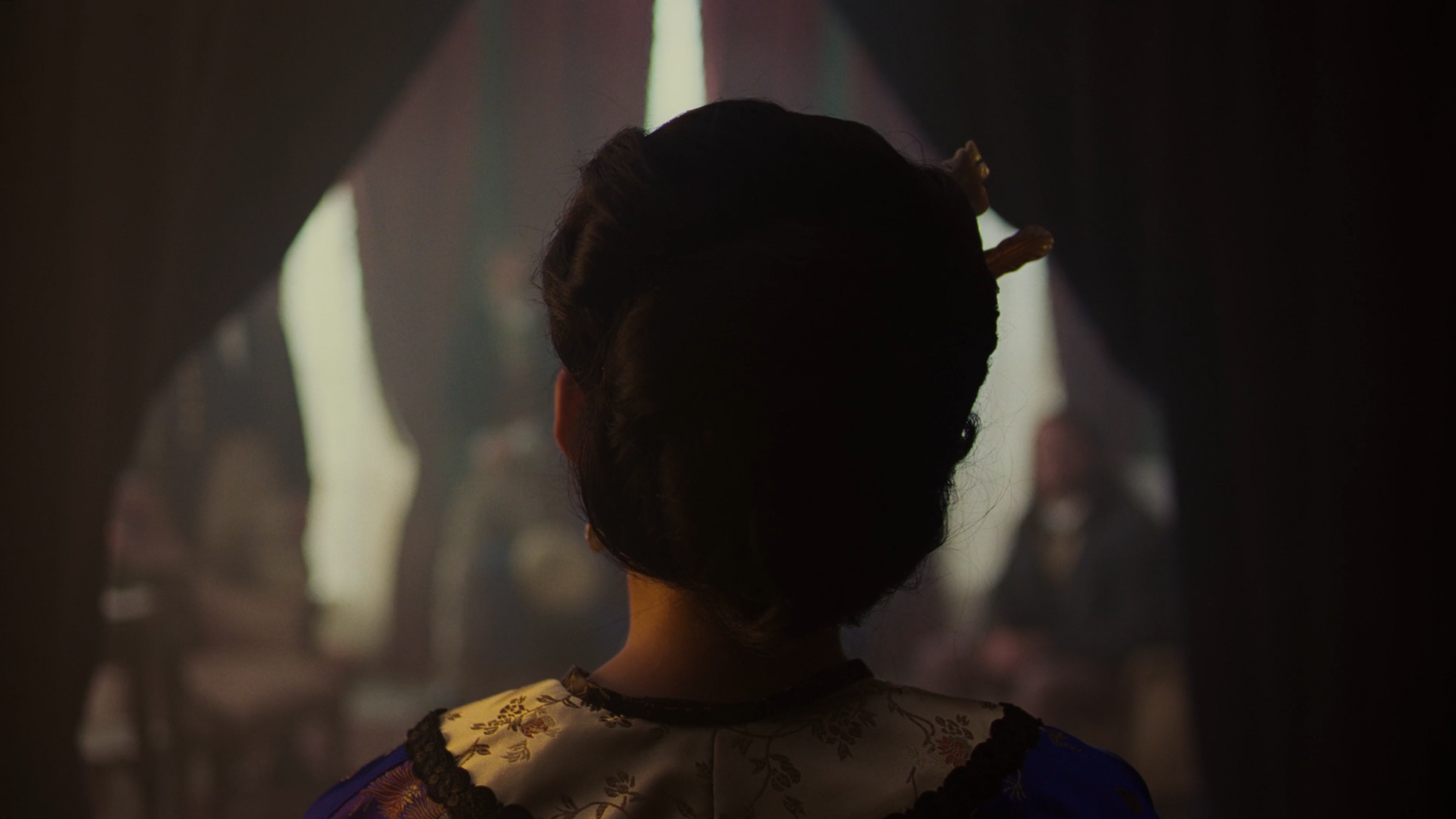Menstrual inequity is not unique to developing nations. It affects all low-income girls and women.
What if someone’s circumstances forced them to experience their period without access to sanitary napkins or tampons? Would they go to school or to work worrying every minute about blood soaking through their underwear, whether the makeshift pad they made with a fistful of toilet paper, a dirty rag, or even cow dung or leaves stayed in place, whether it increased their risk of bacterial infection?
Would you?
Millions of young girls and women experience their monthly periods under these undignified and unhygienic circumstances. They miss school, they miss work, and as a result their earning potential and opportunities for social and financial advancement in their lives are irrevocably affected. In some extreme situations, young women even exchange sex for money to buy menstrual supplies. This is referred to as period poverty.
Period poverty creates poverty
“Imagine not being able to sit through class,” says Jessica Williams, Chief Communications Officer for Days for Girls, a U.S.-based non-profit organization that aims to improve educational and livelihood outcomes for women and girls by “turning periods into pathways.”
“You can’t work, you end up staying home, all these missed opportunities to contribute and make money. Period poverty literally creates poverty.”
The World Bank estimates 500 million women and girls globally lack access to adequate facilities for menstrual hygiene management. That means access to basic needs like sanitary napkins, tampons, toilet paper, separate bathrooms with a door that can safely close behind them and running water to wash their hands and underwear. Half the world’s population in developing and poor countries lacks the fundamental necessities a woman needs to deal safely and with dignity with a bodily function that recurs monthly for 40 years of their lives.
Operating in over 144 countries in six continents, Days for Girls creates washable and reusable menstrual health products and kits that include carry pouches, underwear, soap and washcloths, and a menstrual cup alternative. These products are manufactured and sold locally by women, providing them with a dependable stream of revenue.
Period inequity is our problem, too
While menstrual inequity is far more pervasive in developing nations, it is not unique to far-away countries. Low-income girls and women, women in Indigenous communities, and women experiencing homelessness in western countries—where supermarket and pharmacy aisles are brimming with all brands, colours, sizes, and shapes of sanitary products—are still not able to afford basic menstrual products.
Many countries are now having long-overdue conversations about making sanitary products free or at the very least tax-free and affordable—finally seeing them as medical necessities women don’t have a choice about purchasing. Scotland was the first country in the world to make period products free. It’s perhaps no accident the bill was first introduced by a woman and passed by a government that has a woman at the helm. Countries like Canada and Australia have removed the GST from period products, New Zealand and a handful of U.S. States have already mandated free period products in schools. Recent U.S. studies have shown that about a quarter of menstruating students struggle to access period products, with both anxiety, stigma, and educational barriers cited as the direct result.
Breaking the stigma
Period poverty goes beyond a lack of access to period products. It also refers to taboos attached to menstruation.
“In some cultures, women on their period are considered unclean,” says Williams. “Our job is to help people overcome this, educate them on the subject, teach young boys, their brothers, fathers, husbands, about female bodies so they can be more understanding and supportive of what is essentially a basic human right.”
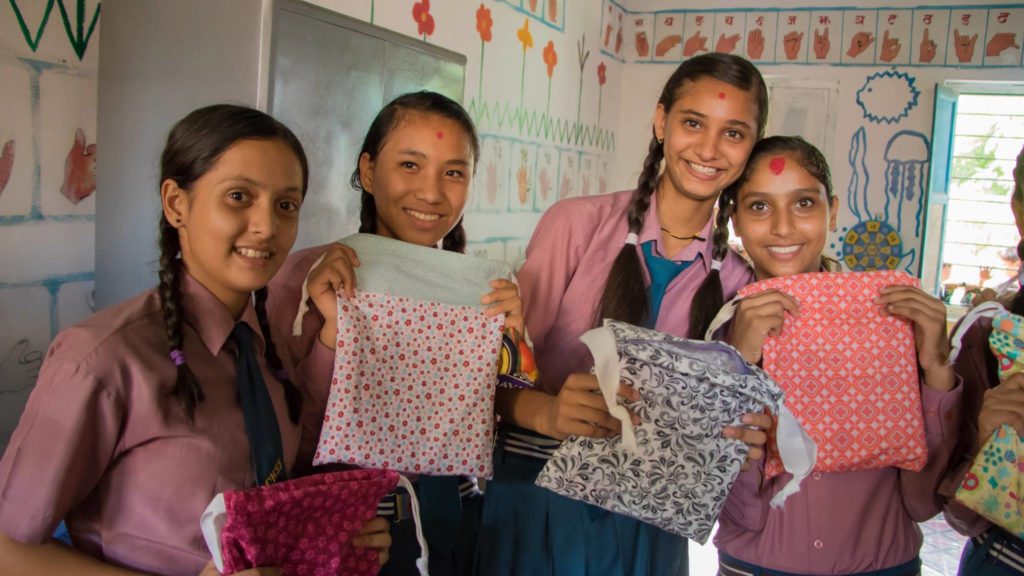
In Nepal, one of the countries Days for Girls operates in, menstruating women are considered bad luck. The stigma forces them into isolated menstruating huts every month, which makes them vulnerable to rape, animal attacks, and bad weather. Many young girls have died while alone. Aside from the physical dangers involved in forced isolation, superstitions like these also degrade women and position them as inferior in a society that should see them as equals.
The scent of solidarity
Barb Stegemann, founder and CEO of The 7 Virtues, a perfume company, decided to help the Nepali women who are shunted into menstruating huts.
On March 8, International Women’s Day, she’s launching Lotus Pear, a scent that uses sustainably sourced geranium from Egypt, with part of the proceeds helping to advance menstrual equity for 700 young women in Nepal.
“It’s about women and power, the loss of it, and getting it back,” Stegemann says. “Each of us is a potential agent of change.” The entrepreneur says she prefers empowerment over charity because it creates self-sufficiency and confidence in one’s abilities. As a young teenager, she saw first-hand how poverty can undermine one’s potential and self-esteem.
“We fell on hard times when I was a young,” she says. “My mom started having health issues and all of sudden… record scratch. We’re living in a trailer on welfare and mom is in the hospital all the time.”
Stegemann says she knows what period poverty feels like.
“Not to get gross,” she says, “but we were poor, I would often use toilet paper.”
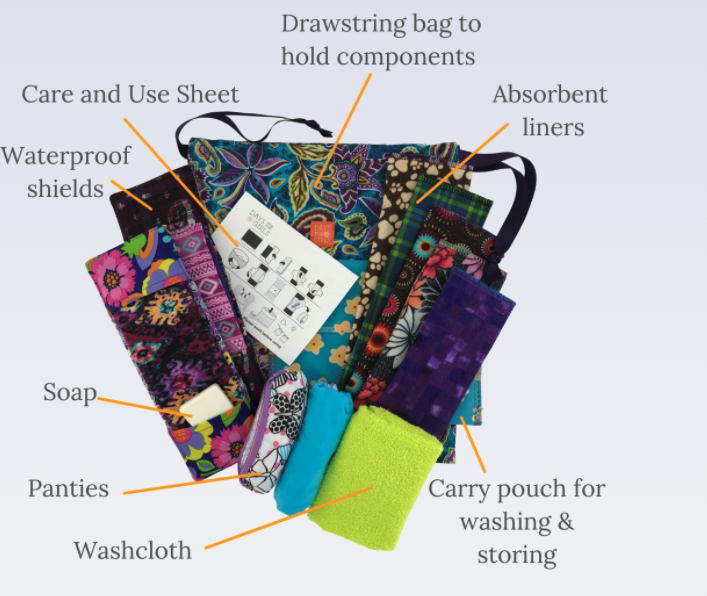
Women lifting other women
Women helping empower other women is a running theme through Stegemann’s career and overall philosophy. When she launched her business 12 years ago, she worked out of her garage and bankrolled the venture with her credit card. She aspired to support families in war-torn nations by flexing women’s buying power to reverse issues of war and poverty.
Her fragrance collection is made with natural essential oils purchased and often manufactured in countries rebuilding after war or strife, from Haiti to Afghanistan and Rwanda, what Stegemann refers to as “retail activism.”
Impact partners like her are essential to the work non-profits like Days for Girls do.
“Without impact partners like The 7 Virtues, we wouldn’t be able to do our work because they essentially fund the work that we do,” says Williams.
Like Stegemann, the founder of Days for Girls is also a woman whose actions have been shaped by difficult personal experiences.
Celeste Mergens was born in Oklahoma, to a family that faced poverty, spent time living in a car and often went without food. At the age of seven she was raped. When she heard that some North American men were travelling to poor countries with suitcases full of menstrual products these women needed just so they could sexually assault them, she knew she had to do something. Since 2008, her organization’s two-pronged approach to period poverty—the sale and manufacture of menstrual pads and the education to eliminate taboos—has changed countless of lives.
“I was told over 400 women immediately came forward for the program in Nepal,” says Stegemann. “The organization has invested for so long in the community there’s now trust, and I think that’s what’s so exciting, it’s a movement.”
The invisible problem
The global pandemic has only exacerbated the challenges women and girls face. A recent report indicates almost 10 million children worldwide might never return to school. It predicts girls will have a harder time than boys, because many will be forced into early marriage or the labor market as families struggle with extreme poverty. With these obstacles in mind, efforts to tackle period poverty and the limitations it imposes on women worldwide can only be encouraged.
“I think the issue of period poverty should be part of everyone’s political platform,” says Stegemann. “It would be refreshing to hear a candidate say, ‘These are the things that advance a community,’ and find a way for companies to provide them for free.”
Stegemann says she was shocked to learn that a lack of sanitary products in the north of Canada, where a box of tampons can run from $16 to more than $45, remains a huge problem among Indigenous communities.
“Was I living around a rock?” she asks. “Why don’t more people know about these things?”
